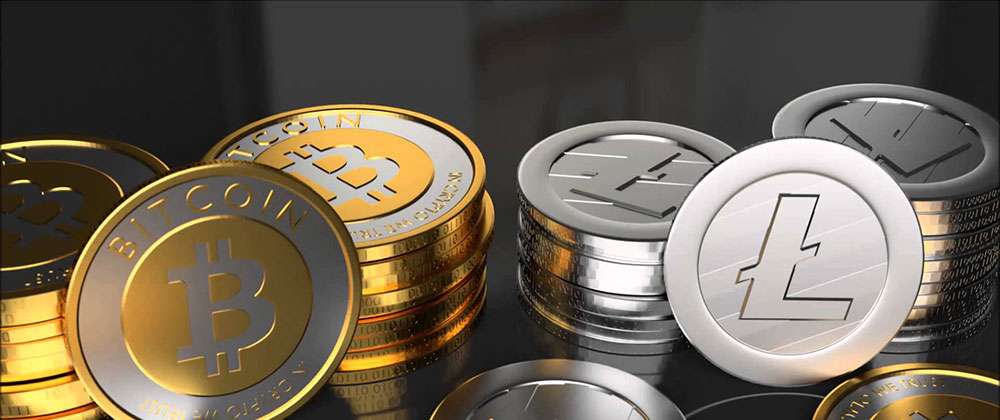Important Note:
Due to the volatility of cryptocurrency some of the information in this article could be old news in 10…9…8…
Cryptocurrencies, even in light of recent pullbacks, have soared in value over the past several months, significantly increasing the on-paper wealth of many speculative investors. While bitcoin was not the first kind of digital cash technology, it certainly has become the most well-known, and its rise has been astronomical.
BitcoinMarket.com, a now-defunct exchange, was the first of its kind, and it valued bitcoin at just $0.003 USD back in March 2010. It hit parity with the US dollar in early 2011 and soared past it thereafter. On December 15, 2017, it reached a high of $19,188.64. (see chart)
There are many different cryptocurrencies now available, and even Kodak came out with one of its own. Only 6 years ago, this 130-year-old business was in bankruptcy, and now they’ve come back with a digital copyright database that uses their very own Kodak coin for its transactions.
While Kodak may be the recent star of news headlines, they’re not the only company to have taken the plunge. Many companies – companies which may have started out with a completely different product – have now diverted all of their efforts into cryptocurrency, something we as a global community are still wrapping our minds around.
Ethereum, a well-known cryptocurrency that hasn’t quite hit the staggering highs of bitcoin, launched in August 2015 at $2.83. It lost traction almost immediately, and then regained and surpassed that value in February 2016, reaching heights of $1,300 in January 2018.
The first ethereum game, CryptoKitties, launched in late November 2017. What seems like a cute online time waster – collecting and breeding digital cats – has somehow managed to become a massive money-maker (yes, just since late November) for some of its users. Players can purchase a digital cat for as little as $25, and then breed them. With 256 different identifiers available, there are 4 billion potential outcomes – unique little digital kitties – possible, and the “best” ones command higher prices. One of the most expensive was purchased in December for the ethereum equivalent of over $100,000.
Yes. A digital cat.
I know I could just be missing something, but I don’t understand how people can become addicted to social media channels. Maybe if I understood that better, I’d understand the allure of a virtual kitty.
Putting aside the question of whether a digital cat is actually a cat, and beyond that, what the value of said cat may be… the question we are often asking when it comes to digital money is:
Is it really a currency?
According to David Yermack, a professor of finance at the NYU Stern School of Business, a bona fide currency functions as:
-
A medium of exchange
-
A store of value
-
A unit of account
Medium of Exchange
While the CryptoKitties game has made ethereum a medium of exchange, at least on that one platform, as of yet digital currencies have not become a widely-adopted, standardized medium of exchange. Bitcoin’s consumer transaction volume averages below one daily transaction with the few merchants that accept it. Since it has no intrinsic value, its worth hinges on its usefulness… which is limited at best.
Store of Value
The test of money is really its ability to store value and, at the moment, most crypto currencies are failing this test. The point of any store of value is risk management, due to a stable demand for the underlying asset.
The lack of stability in cryptocurrencies, and its inherent scarcity, can make for an unreliable store of value.
Unit of Account
A unit of account is something such that to gain it is to be considered a profit and to lose it is considered to be a loss. Nearly anything can serve this function, but liquid goods are among the most useful. Cryptocurrencies are fantastic units of account – as long as they are liquid and useful, which of course, remains to be seen.
Whether or not cryptocurrencies function effectively as “currency” is one thing. The true question that most people are asking is:
Can I make money from owning it?
Recently, Warren Buffet was interviewed on CNBC, and was asked about bitcoin. His response?
“In terms of cryptocurrencies, generally, I can say with almost certainty that they will come to a bad ending,”
“If I could buy a five-year put on every one of the cryptocurrencies, I’d be glad to do it. But I’d never short a dime’s worth.” (source)
There’s no telling how this will play out in the short term. Over the long term, there’s a problem.
The integration of cryptocurrencies will have widespread social and political ramifications, which may prevent their adoption. It’s not just a math problem – a currency requires people to believe in and support it.
While this is a significant hurdle, that doesn’t mean it can’t be overcome. What may be harder is if these currencies become more widely used, how will taxes be handled on these transactions? Will governments simply sit by and allow these transactions to occur outside of their control? Certainly South Korea has already started to act against digital currencies, which resulted in a significant drop in the trading value.
While it may be difficult to believe North America would take such extreme steps, the reality is that we have in the past. The United States Gold Reserve Act of 1934 outlawed private possession of gold, and that prohibition held steady until 1964. There’s certainly a precedent.
When and if these currencies might be regulated, it’s hard to know what the oversight would look like and how it would be implemented. On top of that, the availability of the coins may not be widespread enough for the regulation to even be worth the time and energy spent on it. Current thinking is that only 21 million bitcoins can be mined in total. That’s not a lot of coin circulating, from a global perspective.
On top of that, how do you make it useful in the real world? If the coin is worth $16,000 today, how do you use it to pay for a $1 candy bar, a $300 television, or even your utility bills? While there is no shortage of other kinds of currencies, such as ethereum, litecoin and the aforementioned Kodak coin, how valuable would all of these currencies be if the Federal Reserve created their own? What would happen to private crypto currency?
Blockchain, Automation & Economics
Around the same time that Warren Buffet was on CNBC, Jamie Dimon, the CEO of JP Morgan commented positively about blockchain – the platform that makes crypto currencies possible – as a powerful system that has a lot of benefit. It is said to increase efficiency, and for that reason I can understand the allure, especially to major corporations that might utilize it to be more efficient and productive.
Nobel-prize winning economist Christopher Pissarides, recently noted that automation and technology has helped certain segments of the workforce increase their incomes, but that this same phenomenon has held down wages on the lower end of the workforce. This makes sense because technology is disruptive, and creates a situation where it doesn’t take as many people to do the same amount of work as it used to.
Back when computers were first created, people assumed that automation would mean that we’d all be working fewer hours in a day. But capitalism doesn’t really work like that, and the result of increasing technology is simply that more productivity is expected out of each person as efficiency is improved.
Although blockchain technology has the potential to increase that efficiency again. It probably won’t help the average person in the US or even around the world, in their employment, and their goals to increase their own wages. Whether it will be the great equalizer that some of its proponents hope it will be, or whether it will be used to further widen the gap between the wealthiest and poorest members of our society has yet to be seen.
In the short run, it’s definitely possible to make some money speculating in digital currencies. Certainly, we will hear wild stories of people who made the fortune of a lifetime from it. However, history tells us that it’s generally the few, not the many, who benefit from speculation, whether in dot-coms, silver mines, or tulip bulbs.
– Greg Stewart, CIO


